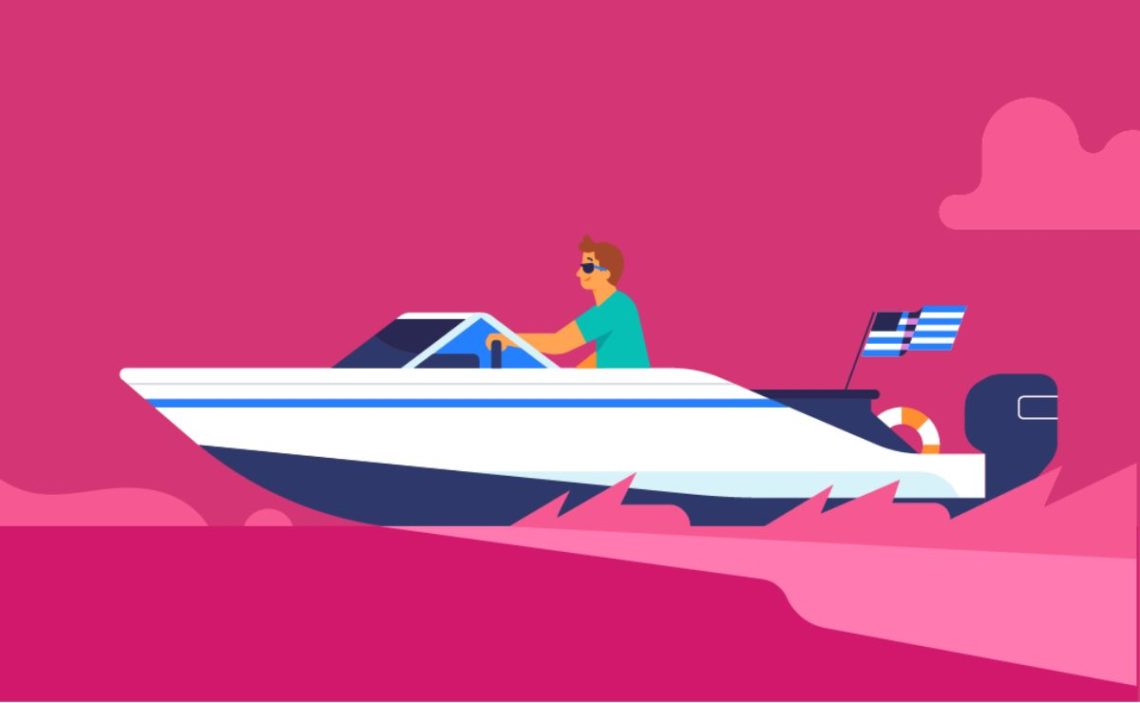If you are thinking of buying a boat or already own one, you will want to know a few things about the maritime world. Questions include, is boat insurance required, or why is insurance important? They are valid because it is the only way to protect your investment, and it is a way to repair some damages.
In some states, boat owners must carry liability coverage for certain boats, such as motorboats over 50 horsepower or personal watercraft. Also, on boats used in state parks or marinas under state management.
To find out if you are required to have insurance for your boat, you can search online for state boat insurance requirements. If you want to get a boat loan, you must provide proof of insurance that covers the full value of the boat in the event of a total loss.
How boat insurance works
Boat insurance protects you financially from damages you cause to others while boating. The boat is also covered, as well as its trailer, in case of physical injury or theft. It works just like automobile insurance.
When you suffer a mishap with the boat or cause injury to others, you must file a claim with the insurer requesting payment for the damages caused. If the incident is covered, the insurance company pays for injuries or losses up to the coverage limit.
There is a belief that boat insurance is not required, much less necessary. If you reside in states such as Utah or Arkansas, you must carry insurance for any watercraft. It does not matter if you have a homeowner’s insurance policy, as it does not cover all boats.
A homeowner’s insurance policy protects small boats on your property but does not provide the coverage you need on the water, especially if it is a motorboat. Boat insurance covers many types of watercraft, including:
- Fishing boats
- Pontoon boats
- Motorboats
- Sailboats
- Personal watercraft such as jet skis
Also, as with vehicle insurance, you can choose and purchase additional coverages as you see fit to protect your boat. For example, coverage for uninsured and underinsured boaters for extra protection on the water.
These are the coverages of a boat insurance policy
Generally, most boat policies are “all-risk” coverage, which is a broad coverage that covers a range of calamities that could befall the boat, including lightning, theft, vandalism, fire, grounding, or sinking, as well as theft or loss of belongings.
The insurance covers physical damage to the vessel and injury or damage you cause to others while boating. There are simple or common coverages for boats, different from all risks:
- Liability: this coverage pays for any damage or injury you cause to others while boating, up to the policy’s limits.
- Physical damage: this includes comprehensive and collision coverage, plus coverage for damage due to events beyond your control, i.e., weather, fire, or theft. The range extends to an injury sustained after a collision with another vessel or object, regardless of fault, even if the ship capsizes.
- Uninsured/Underinsured Boater (UB): This coverage pays for your injuries if a boater hits you with little or no insurance.
It is important to note that if you have physical damage coverage on the policy, you will pay for the furnishings, hull, fittings, and other components such as anchors, engines, batteries, fuel tanks, and safety equipment on board in the event of a covered incident.
Standard policies commonly cover fuel spills and wreck removal in case of sinking. You can look for options to protect personal items, water sports equipment, and fishing equipment. Boat insurance is designed to meet the specific needs of boaters.
Policies with comprehensive coverage are mostly used for boats with a loan. In these cases, the bank is listed as the lienholder on the policy; if loss payments are made, it will be listed as co-payer on the check.
Liability insurance is generally required at marinas, especially to accept a mooring contract, and some will want to be listed as additional insured on the policy.
Commercially available boat insurance offers the option of covering the boat for the current market value in the event of a total loss and is referred to as actual cash value (ACV) or for an agreed value, known as declared value.
If you want to know if boat insurance is necessary, think about how much you want to take care of your property. The more valuable the boat, the more essential insurance becomes to protect against financial loss.
In the case of umbrella policies, you should make sure that it has certain limits. For example, make sure there is no gap in coverage. Some umbrella or excess liability policies require the underlying approach to have liability limits of at least $300,000 to $500,000.
Do you need insurance for your boat?
If you go by the law, only two states are required to carry boat insurance: Arkansas and Utah. However, some states have additional insurance requirements for boaters who meet specific criteria. It is always advisable to check with the state marine board for boat insurance requirements.
Regardless of the law or any contract with an entity, your risk tolerance will determine whether or not you need boat insurance. Remember that any potentially hazardous activity is made more bearable with insurance, thus helping to offset the risks associated with operating a vessel.
Whether you are forced to, or your boat is not worth much, you should consider insuring it. A small powerboat incident can cause serious injuries. Even if you are not responsible for the accident, you could end up paying excessive legal fees for your defense.


